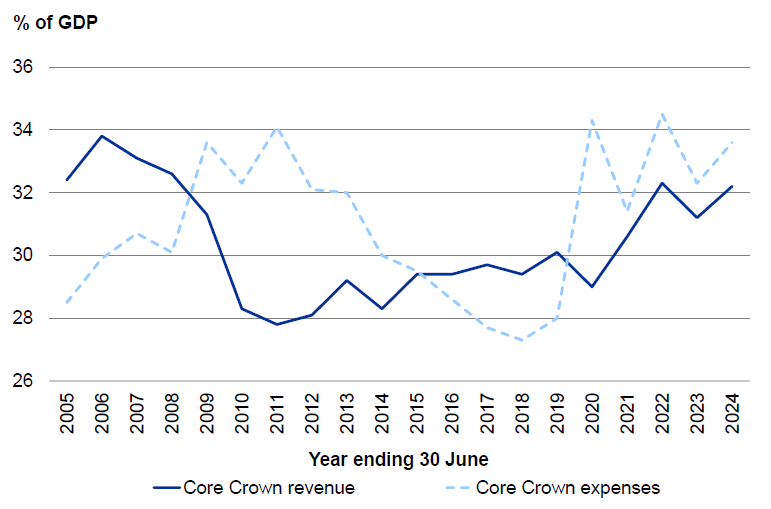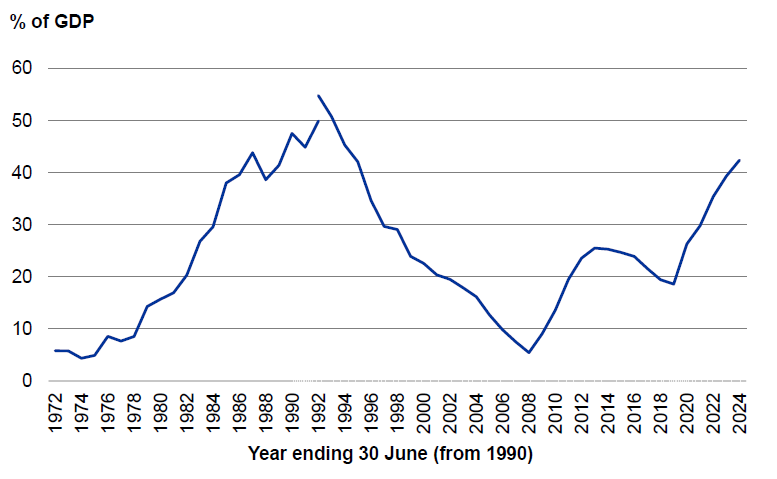Fiscal strategy
New Zealand's fiscal position has deteriorated over the past six years. Core Crown expenses have risen faster than core Crown revenue (Figure 1). The operating balance before gains and losses (OBEGAL) has been in deficit since 2019/20. Net core Crown debt has risen sharply from below 20 per cent of GDP to around 42 per cent in 2023/24 (Figure 2).
Figure 1 - Core Crown revenue and expenses

Source: The Treasury
Figure 2 - Net core Crown debt

* The measure of net core Crown debt adopted in 2009 is restated back to 1992. The earlier measure for the period before 1992 included advances.
Source: The Treasury
The fiscal deterioration is due to several factors, including:
- large discretionary spending increases in previous Budgets (e.g. Budget 2022 committed an additional $9.5 billion each year, on average, in net new operating spending)
- the COVID-19 pandemic and other one-off events
- increased New Zealand Superannuation costs
- the impact on tax revenue from a protracted economic recession, and
- greater finance costs from higher debt and higher interest rates.
After stripping out large one-off expenses and adjusting for the economic cycle, the Treasury estimates a structural operating deficit of around 2.7 per cent of GDP in the current financial year. A structural deficit, by definition, will not resolve itself as the economy picks up - it requires a commitment to fiscal consolidation.
The Government's fiscal strategy, as set out in the Fiscal Strategy Report 2024 (FSR), is to achieve this consolidation over time, which will progressively reduce the structural deficit. The key elements of the strategy are to:
- reduce core Crown expenses towards 30 per cent of GDP over time
- return OBEGAL to surplus by 2027/28, and
- put net core Crown debt as a percentage of GDP on a downward trajectory towards 40 per cent and in the longer-term keep it below that percentage.
This fiscal strategy also states that significant changes in economic forecasts outside the Government's direct control could lead it to consider amending its short-term intentions.